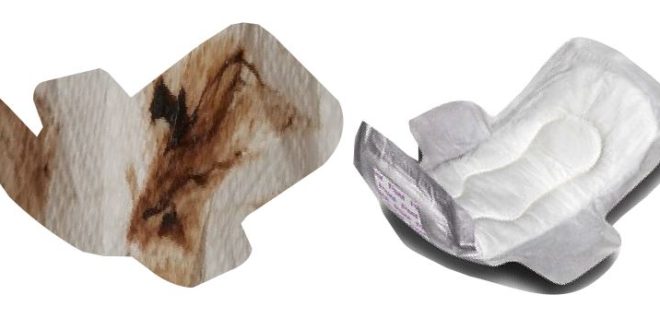Being a woman, there might be a situation when you’ve noticed a brown discharge instead of your period blood. Many questions are arising in the minds of the females who are facing such circumstances. There might be different concerns about the women health arising in the minds of women.
Table of Contents
Different Types of Vaginal Discharge?
- White Discharge: It is a common discharge occur at the beginning and end of the cycle. Generally, this not causes any itching. But it causes itching; thick white discharge can be a symptom of a yeast infection.
- Clear and Stretchy: It is commonly “fertile” mucous and indicates the woman is ovulating.
- Clear and Watery: It happens at various times of women cycle and can be unusually heavy after exercising.
- Yellow or Green Discharge: It may indicate an infection. If it is thick and clumply discharge or has a foul odour, it probably causes infection.
- Brown Discharge: Brown discharge is cervical mucus that exists in the vagina which is tinged with old blood. In some cases, it can be dangerous.
Brown Discharge: What Does It Mean?
Generally, vaginal discharge occurs on an almost daily basis. It usually is white, thin and clear. But it may happen in other colours too. Brown discharge is cervical mucus that exists in the vagina which is tinged with old blood. The fresh blood which is bright red turns brown with ages in the body. It is a normal discharge like other discharges. It can be both light brown or can be dark brown.
The Appearance of the Brown Discharge
There might be many differences between your regular discharge and the unusual or untimely brown discharge from the body. It could have the consistency like water, jelly, creamy or egg-white kind of. In most of the cases, there will be spotting having dark brown or light brown colour, but in rare cases, it could be the darkest colour secretion (close to black). It might be the old blood left in the uterus from the last period as the residual blood converts into brown colour and expels out of the body in the next cycle. There is nothing much to worry as in most of the cases there are no complications involved.

However, it is a concern for the females to get the vaginal discharge on their panty and it might be nothing to worry about. However, it is always good to look for the right ways to explore your issues and find out the reason for such problems in the body. Track down your body’s brown discharge frequency and notice the colour to let your gynaecologist know about the same.
What are the Causes of Brown Discharge?
The most important thing is to notice the colour of your discharge accurately because there is the probability of getting this discharge for a couple of reasons affecting woman health. Here are the causes of Brown Discharge mentioned below:
- Perimenopause: This situation occurs before a female is going to get menopause. The body’s estrogen levels go down, and the brown spotting occurs quite often for some women. If you are near 45 or crossed this age and facing brown discharge issues, it could be the absolute case of perimenopause.
- Birth control pills: The changes in your birth control pills might cause the issue as it involves the variation in the hormone levels of the body.
- Pelvic Inflammatory Disease (PID): It is a severe infection of the reproductive organs of females and causes brown spots formation. It needs the highest concern and requires the best
- Implantation Bleeding: This kind of bleeding occurs when the fertilised egg attaches to the uterine wall, and the brown spotting is the signal of implantation bleeding.
- Late Period: It could be another chance of getting a brown discharge from the body. Women having late periods might expel some unwanted tissues left over from their last period cycle.
- Ovarian Cyst: This is a kind of fluid sac in the ovary and can cause pressure or pain in the lower back. In some cases, it produces external brown discharge issues.
- Polycystic Ovarian Syndrome (POS): It is a hormonal imbalance case, and the common problem faced by POS is the skipping of periods. It even causes brown spotting accompanied by body weight gain, acne, hair growth and such issues.
- Cervical Cancer: This point is not to scare you, but cervical cancer has been reported as the most serious cause of brown discharge from the body. It is not the only symptom of cervical cancer, but the problem follows with the extreme pain during sex, colossal bleeding afterwards, excessive menstrual bleeding and unnecessary bleeding at any time.
Brown Discharge Before a Period
Brown discharge before a period is not common but it is possible to happen and usually harmless. It can be the indication for perimenopause or can be pregnancy. It might be a sign of an underlying health condition. There may be the following reasons that cause brown discharge:
- Sometimes, it can be uterus that tries to get rid of old tissue a week or more before period.
- Sign of pregnancy. I some cases, it can be one of the signs of pregnancy that women notice. If the discharge is dark brown, then women can have probably early pregnant. It is advised to go for an at-home pregnancy test or seeing a doctor.
- In the case, the woman finds a negative pregnancy, and discharge occurs in a day or two, there is not worry about. It is normal. Although, if release continues even after 2-3 days, visit a doctor to do tests.
Brown Discharge After a Period
Brown discharge before a period is usually common. It is typically due to old tissues or menstrual blood getting cleaned out just after the period. There can be some dark spotting after periods are common and part of their regular menstrual cycle.
Unfortunately, there are many cases in which brown vaginal fluid indicates serious issues:
- Severe yeast infection
- Cervical cancer
- Implantation bleeding
- Bacterial vaginosis
- Hormonal fluctuations
When to see a Doctor (Gynecologist)- What to do?
Generally, it is common to occur brown discharge. No anything needs to do, not to worry. Although, women need to track or note it down about how discharge occur. In the cases, if it happens more than a couple of weeks, or usually occur before the periods or face or notice other symptoms such as bad smells, pain or cramping, vaginal itching, then it is advised to consult a doctor.








